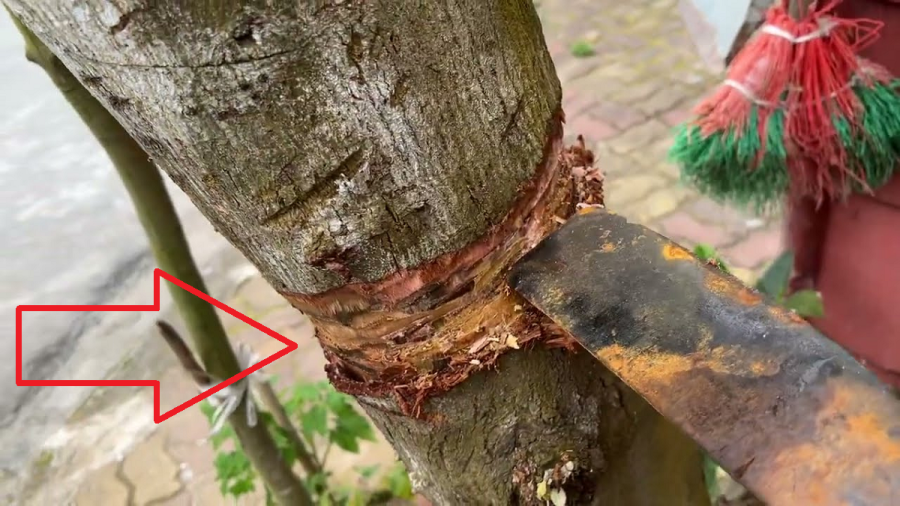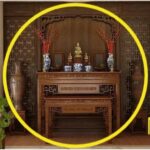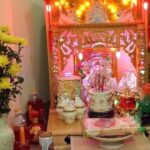In many cultures, elders often advise their offspring to plant trees that are considered auspicious in feng shui, believing that it will bring wealth, prosperity, and peace to the family.

Don’t Chop Down These 3 Trees, Even in Hard Times
According to folk beliefs, trees are not just decorative elements or sources of shade; they hold significant feng shui meanings. They are thought to attract wealth and ward off negative energies. Certain types of indoor plants, when well-maintained, can bring increasing blessings to the homeowners over the years. The following are three types of trees that you should never cut down, as they bring not only natural beauty but also financial prosperity and good fortune.
1. Money Plant Tree
The Money Plant Tree, or ‘Lộc Vừng’ in Vietnamese, has long been associated with special feng shui significance. The very name “Lộc Vừng” evokes images of abundance, prosperity, and good luck. This tree is typically grown in gardens or indoors to attract wealth and fortune. A distinctive feature of the Money Plant Tree is that the larger and older it grows, the more prosperity it brings.
Apart from its feng shui benefits, the Money Plant Tree also bears beautiful flowers that bloom in red or white clusters, adding a touch of romanticism to its appearance. Ancient wisdom holds that when the Money Plant Tree flourishes with abundant blooms, it foretells a period of happiness and prosperity. Thus, should a Money Plant Tree find its way into your home, cherish and nurture it, refraining from chopping it down to prevent wealth from departing.
2. Bonsai Banyan Tree
The Bonsai Banyan Tree, often cultivated indoors or in yards, boasts an attractive shape, resilience, and an impressively long lifespan. In feng shui, the banyan tree symbolizes longevity and serves as a guardian, offering peace and protection to its owners by warding off negative energies. Notably, the Bonsai Banyan Tree is highly valued, and its worth increases with age, both materially and in feng shui terms.
Homeowners typically select Bonsai Banyan Trees with robust root systems and sturdy trunks for indoor planting, as they represent stability and strength. This tree is also believed to expel negative forces and invite tranquility into the household. Therefore, if you own a Bonsai Banyan Tree, cherish and care for it diligently so that its growth parallels the flourishing of your wealth.
3. Pagoda Tree

The Pagoda Tree: A Symbol of Beauty and Profound Feng Shui Significance
An ancient saying goes, “Plant a Pagoda Tree in front of your house, and prosperity will follow for generations.” This adage hints at the belief that planting a Pagoda Tree in the front yard will bring immense wealth and honor to the family. The Pagoda Tree boasts lush green leaves, a tall and straight stature, and pristine white flowers, symbolizing purity and abundance.
From a feng shui perspective, the Pagoda Tree attracts wealth and wards off misfortune. The older and taller it grows, the more prosperity it bestows upon the family. Thus, should you be fortunate enough to have a Pagoda Tree on your property, guard it closely, for it is not merely a decorative plant but a symbol of success and abundance.
The information in this article is based on traditional beliefs and should be considered advisory only.





































